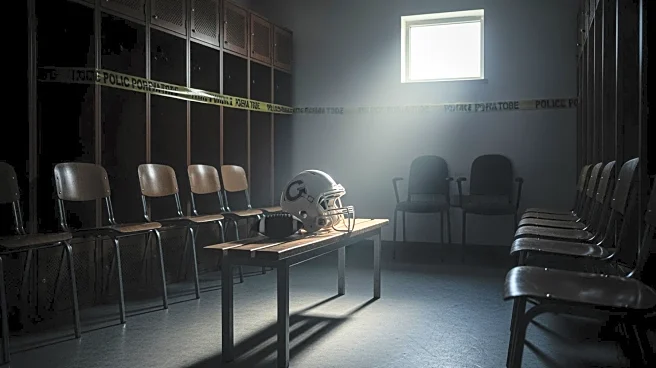What's Happening?
Dallas Cowboys head coach Brian Schottenheimer has spoken publicly for the first time following the death of Marshawn Kneeland, a defensive end for the team. Kneeland, who was 24 years old, passed away
last week, and his death has been confirmed by both the team and local authorities. Schottenheimer's remarks come as the team and community grapple with the loss of the young athlete, highlighting the impact of mental health issues within the sports community.
Why It's Important?
The death of Marshawn Kneeland underscores the critical importance of mental health awareness and support within professional sports. As athletes face immense pressure and scrutiny, the need for comprehensive mental health resources becomes increasingly vital. The incident may prompt sports organizations to reevaluate their mental health programs and support systems, potentially leading to enhanced measures to protect athletes' well-being. This development could influence policies across the NFL and other sports leagues, emphasizing the need for proactive mental health strategies.
What's Next?
In the wake of Kneeland's death, the Dallas Cowboys and other NFL teams may consider implementing more robust mental health initiatives. This could include increased access to mental health professionals, mandatory mental health education, and support networks for players. The league might also face pressure from advocacy groups and the public to address mental health issues more openly, potentially leading to policy changes aimed at safeguarding athletes' mental health.
Beyond the Headlines
The tragedy of Marshawn Kneeland's death may spark broader discussions about the stigma surrounding mental health in sports. It highlights the need for cultural shifts within the industry to prioritize mental health as much as physical health. This could lead to long-term changes in how athletes are supported throughout their careers, fostering a more holistic approach to athlete care.









